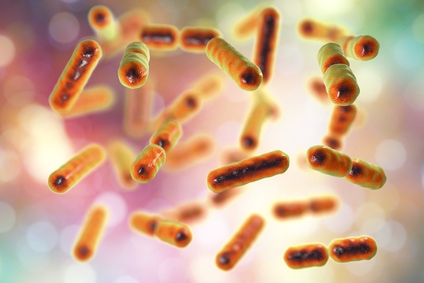Gestational high-blood pressure, or pregnancy induced hypertension poses a threat to mom and baby during a pregnancy. New research suggests that probiotics taken at specific intervals during pregnancy could lower the risk of premature birth.
In recent years, science has turned its microscope to the millions upon millions of germs that live in and on our bodies. Recognition of the friendly nature of many bacteria has been slow in coming. For a generation, medical science has attempted to stamp out all bacteria with the over-prescription of antibiotics. The outcome is well known—the rise of superbugs, better known as antibiotic-resistant organisms.
Not All Bacteria Is Bad
Now the tide is turning to the recognition that friendly bacteria that reside within each one of us has a critically important role in our health. The microbiome, or environment of germs that live within our bodies, is being recognized as a “second brain,” some of which resides in our gut, quietly influencing our health.
As the importance of the microbiome becomes better understood, science has naturally looked at its function—and how we might boost or nurture its existence in our bodies. After all, it does outnumber us in our own skin, about 39 trillion to one.
Probiotics – Could They Jump Start Your Recovery?
Some scientists and many consumers believe the use of probiotics is a sure-fire way to jump start the human microbiome after an illness or dose of antibiotics. Probiotics—which are friendly bacteria for the most part—reside in some of our favorite foods, like yogurt with active cultures, Kimchi, and other fermented foods.
Along with studying microorganisms, scientists explore how bacteria and added bacteria—like probiotics—could help restore or maintain health. In research published in the journal BMJ Open, scientists found a relationship between gestational hypertension and probiotics.
Diet and pregnancy
It is not novel to suggest that what mom eats impacts her baby. This study, among others, suggest that what mom eats—and when she eats it—could help defer some serious pregnancy complications—like gestational high blood pressure. The research study notes pregnancy induced hypertension results in sharper inflammatory responses in pregnant women. Along with a diet high in vegetable oils, fruit and vegetables, probiotics have been shown to balance vaginal bacterial growth, and may reduce the inflammatory response in human placental cells.
In a study that utilized data from 70,000 pregnancies surveyed in the Norwegian Mother and Child Cohort Study, researchers found some interesting correlations between probiotics and pregnancy.
Specifically, the research suggests:
- About one in four women enrolled in the study consumed probiotic milk products before conception. Just over a third of these women drank probiotic milk during early pregnancy and later in pregnancy.
- On evaluation, consumption of probiotic milk products early in pregnancy was associated with an 11 percent reduced risk of premature birth.
- Consumption of these same products later in pregnancy translated to a 27 percent lowered risk of premature birth.
The amount of probiotic milk consumed did not seem to make a difference in the risk. This research adds to the growing conversation about identifying and using friendly bacteria, while we remain vigilant for proper care and treatment of persons under attack by infectious bacteria. Non-invasive, healthy steps that can reduce the risk of premature birth could help reduce the life-altering complications associated with being born too early.
Experienced medical malpractice law firm serving Washington, DC and Maryland
From offices in Baltimore and Washington, DC, trusted lawyers at Schochor, Staton, Goldberg, and Cardea, P.A. are knowledgeable birth injury attorneys that deliver advice to clients injured through medical mistake and negligence. Contact us to schedule a free consultation to discuss your case today.

